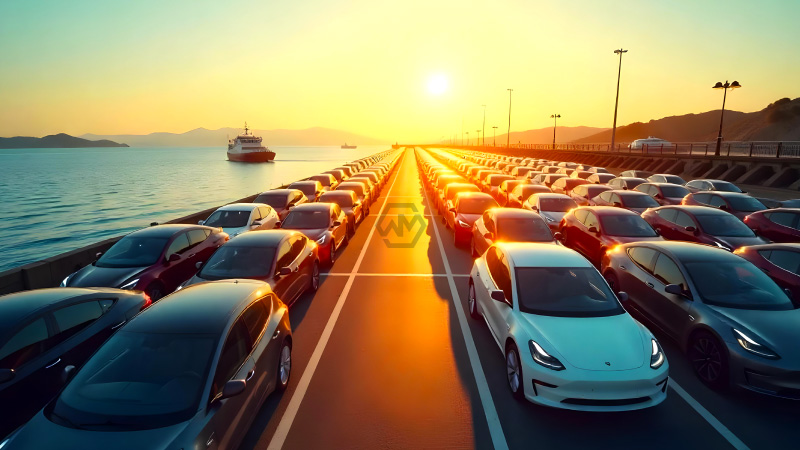- The EU has imposed additional tariffs up to 35.3% on Chinese EVs, citing unfair subsidies.
- Major Chinese automakers, including SAIC and BYD, are affected, facing varied tariff rates.
- China has escalated the matter to the WTO, condemning the tariffs as protectionist.
The European Union has implemented tariffs as high as 35.3% on electric vehicles (EVs) imported from China, following findings that Chinese EV manufacturers benefit from state subsidies, which the EU claims distort competition.
Key automakers affected include SAIC Motor, which faces the maximum tariff rate, and companies like BYD and Geely, which face rates of 17% and 18.8%, respectively.
EU’s New Tariffs on Chinese EVs Spark WTO Dispute
These tariffs aim to level the playing field for European automakers who argue that Chinese state-supported EVs are sold at prices that undercut local products. The EU has expressed concern over potential economic damage to its EV industry if it cannot compete on price. In response, China filed a complaint with the World Trade Organization (WTO), intensifying an already strained trade relationship with the EU. The tariffs, set to last for five years, underscore Europe’s pushback against the influence of Chinese industry on its economy.
The EU’s decision follows a comprehensive anti-subsidy investigation, which concluded that substantial state backing allows Chinese EVs to enter the European market at prices lower than local manufacturers can sustainably match. European Commission officials argue that these subsidies are damaging for the European EV industry, which is already contending with high production costs and market pressure. The EU aims to protect domestic EV players from economic injury by implementing these duties.
This move from the EU has not gone unchallenged. China’s Ministry of Commerce criticized the tariffs, characterizing them as protectionist and alleging they undermine free trade principles. By filing a formal complaint with the World Trade Organization, China is appealing to the global body responsible for settling trade disputes, indicating that it is prepared to defend its EV sector. Observers see this as a pivotal test case that could impact future trade policies between major economic players and shape global EV market dynamics.
European automotive firms hope these tariffs will grant them a competitive boost, especially as they invest heavily in sustainable technologies to keep up with emissions standards. With EV sales on the rise globally, the EU’s intervention underscores its commitment to safeguarding its green economy while balancing international trade pressures.
The EU’s tariffs on Chinese EVs, followed by China’s WTO complaint, highlight the evolving complexity of global trade relations, particularly in the fast-growing EV sector. As both parties navigate these new trade dynamics, the outcome could set a precedent for managing subsidies and market access in the green economy.
“The EU has a duty to protect its industry from unfair competition… we are prepared to take action where necessary,” said a European Commission spokesperson, emphasizing the EU’s stance on maintaining fair market practices.



